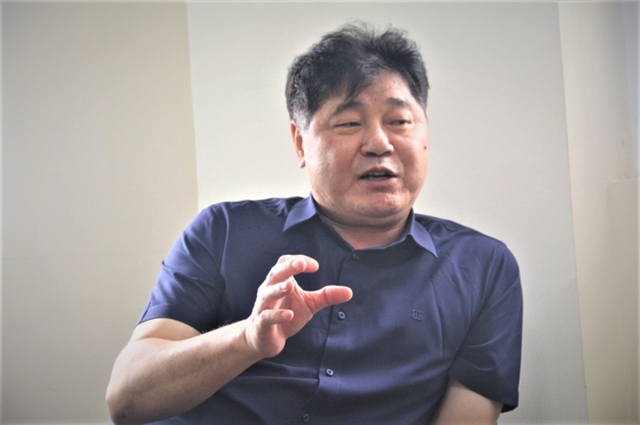 Economy
Economy


|
| Director of the National Agricultural Extension Centre Lê Quốc Thanh |
The Europe-Việt Nam Free Trade Agreement (EVFTA) is an opportunity to harness the potential of Việt Nam’s rice exports to high-quality markets and a chance for the country to elevate its rice brand. However, Vietnamese businesses face many challenges to meet EU standards, especially food quality, hygiene and safety and the traceability of rice seeds. Director of the National Agricultural Extension Centre Lê Quốc Thanh talks with the Vietnam News Agency about this issue.
How do you evaluate the development of the rice industry over the past time?
The world produces about 500 million tonnes of rice annually, of which the amount of rice imported by countries is about 45 million tonnes. Việt Nam is one of the major powers in rice production and export. This is a strong product of Việt Nam’s agricultural industry. In 2019 alone, the country exported about 6.3 million tonnes.
Under the EVFTA, the EU grants a quota for Việt Nam to export 80,000 tonnes of rice per year with zero per cent duties. Although the quantity is not much, many experts believe it will open doors for Vietnamese rice and improve quality. What is your comment on this issue?
This is a very good sign for Việt Nam’s agricultural production and the rice production sector in particular as the Government and the Ministry of Agriculture and Rural Development are making their best efforts to restructure agricultural production and the rice production chain.
The EU importing Vietnamese rice is a good opportunity, marking the efforts of the agricultural sector and farmers in providing high-quality products for markets with strict quality technical requirements and barriers.
To take advantage of the incentives from EVFTA, the Government recently issued a decree regulating the certification of fragrant rice exported to the EU. Can Vietnamese enterprises meet EU standards?
This is a very drastic action by the Government. Although there are only 80,000 tonnes of rice allowed to enter the EU market, the decree has proved the Government’s determination to improve the quality of rice. The decree has regulated conditions for producers and businesses to enter this fastidious market.
This is a companion action with the producers. It has become a movement in the production of rice meeting with EU standards. Farmers can fully meet the toughest standards.
The fact that the authorities are willing to work with producers and businesses expresses our spirit to step in the global chain, affirming Vietnamese rice is a brand meeting global standards.
The rice industry has succeeded in the restructuring process, but it still has shortcomings in production, processing and consumption. What solutions are needed for the rice industry to develop and compete sustainably?
Although rice production is the strength of Việt Nam, in fact, we have just entered markets with normal quality requirements. Therefore, we must have very specific solutions for rice production in the future to meet the demand of difficult markets.
I think the first thing is that we have to synchronise from production to consumption, making effective chains in rice production.
We need to set up a master plan for rice production, starting with the building of raw material areas, which then will be directly connected with the producers and businesses.
We have unanimity from the political system, the Government, ministries and agencies, in addition to producers and enterprises, a key factor to promote sustainable connection.
I think if we have sustainable and synchronous connections, our rice brand will sustainably develop, not only in the domestic market but also in the world. — VNS




